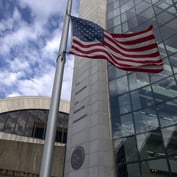The House Financial Services Capital Markets Subcommittee plans to release a discussion draft next week of a bill that would require the Securities and Exchange Commission and the Department of Labor to collaborate on their fiduciary rules.
But SEC Chairwoman Mary Jo White signaled in comments before the full committee Thursday that while the agencies have been collaborating on their rules, each would ultimately make its own decisions.
AdvisorOne obtained a copy of the discussion draft, written by Rep. Ann Wagner, R-Mo., on Thursday. It would amend Section 913 of the Dodd-Frank Act by:
- Mandating that the SEC coordinate with other federal agencies before issuing any broker-dealer fiduciary rule;
- Requiring the SEC, before issuing any rule, to find that the new rule will remedy investor confusion; and
- Requiring the SEC, before issuing any final rule, to find that the status quo demonstrates economic harm to investors and that the new rule will remedy this economic harm.
When asked during the full committee hearing on Thursday if she was concerned whether DOL’s “fast track” approach in getting a redraft of its fiduciary proposal out in July would “undermine” the agency’s rule proposal, White told members of the House Financial Services Committee that staff at the SEC and the DOL had been “in frequent contact” on their fiduciary rules, and that the agency would “make certain” that DOL was made aware of how the SEC’s rule differs from DOL’s. However, she noted that the SEC and DOL were “two different agencies” and that the DOL would “ultimately make its own independent decision” regarding its fiduciary rule.
White told lawmakers that no decision to move forward with the SEC’s rulemaking would be made until the agency’s current request for public input on the costs and benefits of a rule ends in July, and the agency reviews the comments.
“It seems as though the SEC and DOL are in a race” to create fiduciary rules, said Rep. Bill Huizenga, R-Mich. “But one of those [agencies] shouldn’t be in the race,” he said, noting his concern about IRAs being included in the DOL’s fiduciary rule proposal.
Phyllis Borzi, assistant secretary of Labor for the Employee Benefits Security Administration, has repeatedly said that the SEC and DOL work under two very different statutes, and that collaboration on the two agency’s fiduciary rules can only go so far.
Borzi told AdvisorOne in a recent interview that EBSA’s ultimate goal in its fiduciary rule was “to take everything we have learned [from the comments] and—acting in coordination with the SEC so that compliance with one regulatory regime doesn’t put you out of compliance with the other—issue a final rule that makes sense and protects the trillions of dollars in retirement savings that workers and families are counting on.”
White also told lawmakers that it was imperative for the agency to get the requested boost in funding to $1.67 billion under President Barack Obama’s fiscal 2014 budget. “We very much need what the President has requested,” White told lawmakers. “I’m very concerned that if we don’t get that budget, we can’t do our job.”
As she told the House Appropriations Committee a week before, the budget boost would help the agency fulfill one of its top priorities: to add 250 examiners for advisors.








 May 16, 2013 at 12:00 PM
May 16, 2013 at 12:00 PM










